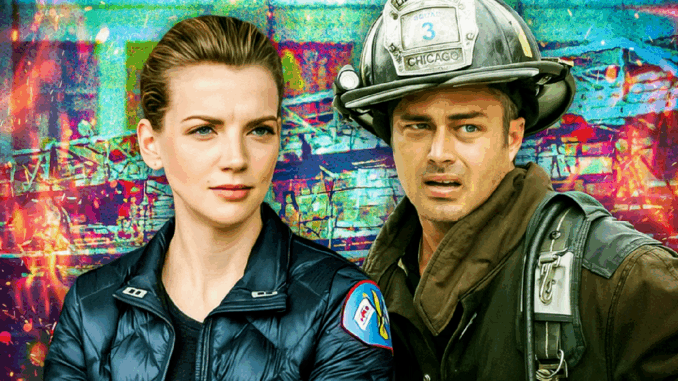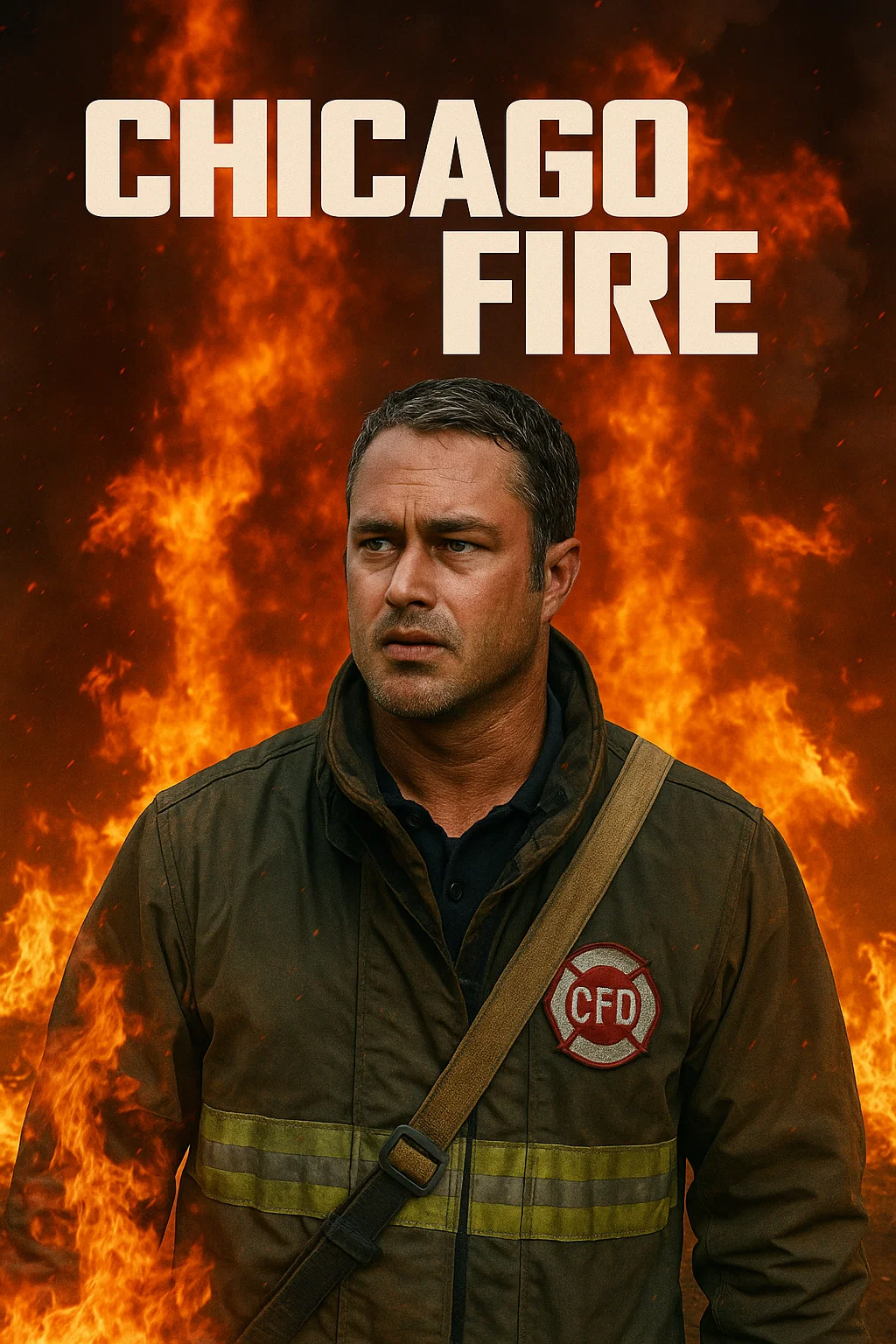
On paper, Chicago Fire is unstoppable. As NBC’s top-rated scripted drama and the flagship of the One Chicago franchise, it continues to draw millions of loyal viewers every week. With more than a decade on the air, the firefighter procedural remains a cornerstone of primetime TV. Yet, behind the roaring blazes and record-breaking numbers, Season 13 tells a different story—one of quiet struggles, cast shakeups, and a growing identity crisis that could reshape the future of Firehouse 51.
The Legacy of a Powerhouse
When Chicago Fire premiered in 2012, it filled a void no other drama dared to touch. It wasn’t about lawyers or doctors or detectives—it was about firefighters and paramedics, everyday heroes running into danger when everyone else ran away. Its raw authenticity, emotional stakes, and bold willingness to kill off characters made it a breakout hit. Over time, it set the stage for a massive TV universe, spawning Chicago P.D. and Chicago Med.
Today, the franchise remains NBC’s crown jewel. Season 13 has pulled in 4.8 million viewers, making it not only NBC’s #1 scripted show but also the fourth most-watched drama across all broadcast television. On the surface, those numbers look untouchable. But dig deeper, and the cracks start to show.
Bowden’s Exit: The Turning Point
The departure of Fire Chief Wallace Bowden (Eamonn Walker) after 12 seasons marked the most seismic cast shakeup in Chicago Fire’s history. Since the very beginning, Bowden’s steady leadership was the backbone of Firehouse 51. His exit left a vacuum that the show has struggled to fill.
Enter Chief Dom Pascal (Dermot Mulroney), a new leader determined to impose order and run a tighter ship. While Pascal’s no-nonsense approach has created fresh dramatic tension—especially in his clashes with Severide (Taylor Kinney) and Kidd (Miranda Rae Mayo)—longtime fans remain divided. Some welcome the shakeup. Others feel the heart of the firehouse is missing without Bowden’s quiet strength.
Viewers Slipping Away
Despite still being a ratings powerhouse, Season 13 has lost roughly 8% of its audience compared to Season 12. That decline might sound small, but it’s significant for a show that has dominated primetime for so long. It signals a subtle erosion of loyalty, particularly among fans who grew attached to the original core cast.
Adding to the tension, other plotlines—such as Cruz (Joe Miñoso) being blackmailed into a botched robbery—have felt more like soap opera twists than grounded drama. While high-stakes personal stories have always been a part of Chicago Fire’s DNA, critics argue the balance has tipped too far away from the raw, perilous rescues that made the show unique in the first place.
The Broader TV Landscape
Part of the problem isn’t unique to Chicago Fire. Network television is still recovering from the 2023 writers’ and actors’ strikes, which disrupted schedules and fractured audience habits. Streaming competition has also grown fiercer, with shows like CBS’ Fire Country pulling in younger audiences by offering fresh spins on firefighter storytelling.
Still, the One Chicago brand remains NBC’s strongest asset. Chicago Med is closing the gap on Fire’s ratings, and Chicago P.D. continues to deliver its gritty cop drama week after week. But for the first time, there’s a sense that Chicago Fire could be vulnerable.
Can Season 13 Get Back on Track?
The solution may lie in rediscovering what made Chicago Fire stand out in the first place. Early seasons thrived on the gritty, dangerous reality of firefighting—the unpredictable rescues, the devastating losses, the reminder that heroes are human too. Bringing that raw intensity back to the forefront could re-energize the series.
Chief Pascal’s arrival offers another opportunity. If his reforms at Firehouse 51 are used to deepen the tension between leadership and frontline firefighters, the show could blend firehouse politics with explosive rescue missions. Done right, this mix could restore the authenticity that’s been overshadowed by melodrama.

The Fire Still Burns
Thirteen seasons in, it’s natural for a show to face growing pains. Yet, Chicago Fire is far from finished. Its ratings dominance, devoted fan base, and rich ensemble cast keep it at the top of NBC’s lineup. But if it wants to avoid burnout, Season 13—and the inevitable Season 14—must remember its roots: the relentless heat of the fire, the dangers of the job, and the unbreakable bonds of Firehouse 51.
Because as fans know, when the flames rise, Chicago Fire is at its very best.